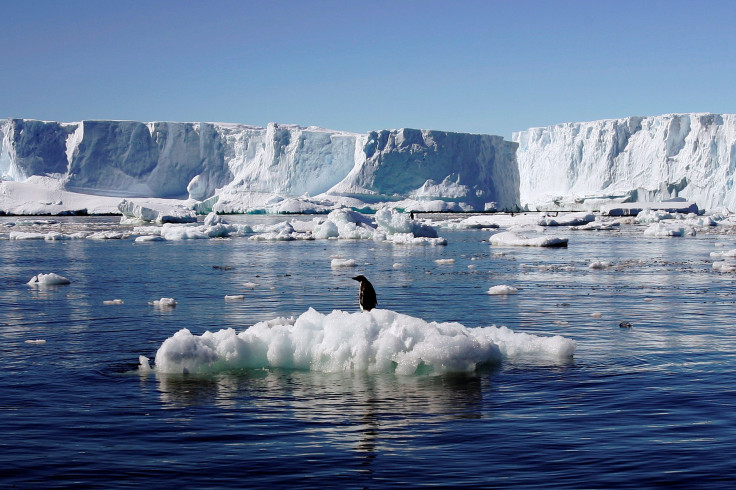Global Warming Melts Polar Ice To Record Lows As Temperatures Rise Under Climate Change Effects

They are quite literally poles apart but both the North Pole and the South Pole have something unfortunate in common at the moment: They are both seeing the lowest levels of sea ice since modern record-keeping began.
News about the Arctic sea ice being at its lowest level ever for this time of the year — it hits its minimum in September and starts to build up again in October as the six-monthlong polar winter sets in — came a few days ago. Temperatures near North Pole are said to be 36 degrees higher than normal for this time of the year, and the sea ice level — which has fallen by about half since records began in 1979 — is lesser than its previous low of 2012.
On the other end of Earth, Antarctica behaves very differently from the Arctic, and many years have seen an increase in Antarctic sea ice. In fact, after increasing for three consecutive years, Antarctic sea ice had reached its maximum recorded extent in 2014 before falling back to average levels in 2015, but as NASA pointed out, the decrease in Arctic sea ice was three times greater than the increase seen in the Antarctic at the time.
The increase in Antarctic sea ice levels is often cited by climate change skeptics and deniers as evidence for their arguments (“If climate change is real, why doesn’t it affect the South Pole ice?” or other similar arguments), but now, latest data collected by NASA shows that Antarctic sea ice is also at a record low for this time of the year.
In a statement, NASA said: “Antarctica is heading into austral summer, a period of rapid sea ice melt in the Southern Ocean. But this year the sea ice loss has been particularly swift and the Antarctic sea ice extent is currently at the lowest level for this time of year ever recorded in the satellite record, which began in 1979.”
Walt Meier, a research scientist with the Cryospheric Sciences Laboratory at NASA's Goddard Space Flight Center, told CNN: “It looks like, since the beginning of October, that for the first time we are seeing both the Arctic and Antarctic sea ice running at record low levels.”
The observation is no proof that it will become a trend but it certainly quashes claims that Antarctic sea ice was constantly increasing. Climate change is a complex collection of various phenomena, affecting different parts of the planet differently, and global warming is only one aspect of it.
© Copyright IBTimes 2024. All rights reserved.




















